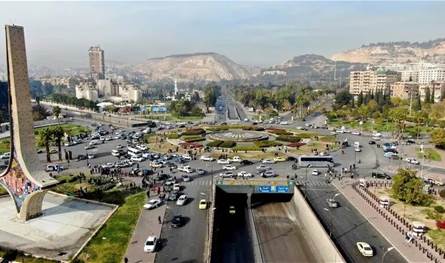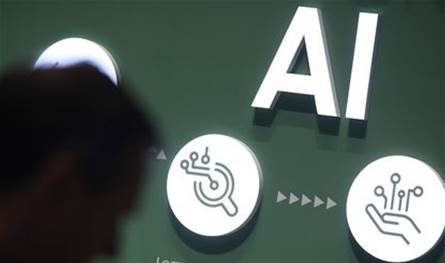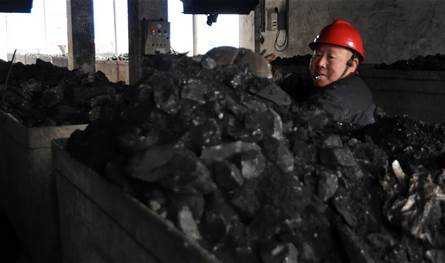Lebanon’s politicians lose their Russian friend … this era is over

Nader Hejaz – MTV
Politicians in Lebanon lost a close friend of a large number of them, which was a crossing bridge to Moscow for decades, and he succeeded in weaving firm relationships of a personal level with the majority of them.
Mikhail Bogdanov has left his high diplomatic position, as deputy minister of foreign ministry and special actor of the Russian president in The Middle East And Africa, at an accurate time in which the world is witnessing great changes, especially the Middle East, which the news of its details, problems, crises and cultures, and the most important of its accumulated disappointments.
Bogdanov, 74, may be actually tired, decided to retire, and accepted President Vladimir Putin to resign, and may be otherwise. The expert in Russian affairs, Dr. Khaled Al -Ezzi, is not assured, but he indicates that this sudden decision came days after the dismissal of the Russian Minister of Transport by Putin, before he committed suicide in his car.
Bougdanov was not an ordinary diplomat, and Al -Ezzi describes it, in an interview with MTV, as “one of the in -depth political diplomacy and has a distinctive and prominent role in knowing the Middle East region, because when he graduated from Soviet diplomacy in 1974 he had relations with the parties of these countries, where he worked as an ambassador in Egypt, Lebanon and Syria and built wide relations with groups of Lebanese and Syrian parties and had a wide relationship with this The framework.
He adds: “What is characterized by Bogdanov is that he is good at the Arabic language in a good way, which allowed him to know the Arab nature, political opinions and differences as a result of his knowledge of the geographical region he is working on, as a person who is personalized by Putin in it.”
Bougdanov, who served as Deputy Foreign Minister since June 2011, attended several Lebanese stations, where his presence in Beirut was not without political messages, especially since this turbulent stage coincided with the Syrian war and Russian entry into the conflict circuit from its wide door, by supporting the former Syrian regime.
At this stage, the Russians communicating lines changed with the Lebanese powers, as former allies have moved away, and others became a permanent visitors of Moscow.
Al -Ezzi stopped with interest in the tweet of the former president of the Progressive Socialist Party, Walid Jumblatt, saying: “It was remarkable that Jumblatt quickly initiated and thanked Bogdanov. We must understand what he wrote to him that the chosen with its door is open to you, and this is an indication that the Russians must understand that there are previous alliances and friendships that they should not ignore as a result of certain interests from here or there.” “Jumblatt was and still is the only ally of the Russians, but they forgot this thing and went away in the context of alliances with Iran and the Assad system.”
In this context, Al -Ezzi notes that “in the past there were allies of Russia in the national movement and the Progressive Socialist Party, but with the progress of the stage, Russia became only looking at its allies in Hezbollah, as a result of the relationship between it and Iran,” adding that “Russia has no allies in Lebanon, but rather personalities based on geopolitical changes.”
Bogdanov’s tasks later expanded, after he was appointed as a special representative of the Russian president in the Middle East and Africa in October 2014, but the region changed completely after the Flood of Al -Aqsa on the seventh of October, and the developments that followed, especially the fall of Bashar al -Assad’s regime and the recent Iranian Israeli war.
So what does Russia’s dismissals mean on the impact of the major changes in the region?
Al -Ezzi answers: “It must be said that a major failure occurred in the Middle East region of Russian politics and diplomacy, was its failure in Libya and then in Syria, where its role declined to limit its rules and interests, and perhaps Putin now believes that the old classic role of Russia in light of its dealings with the Middle East is time for him to change and recognize that Russia has no presence in complexes with the regimes. Russia’s relationship with Bashar al -Assad, instead of the relationship with the components of Syria, which was the respect of Russia, and therefore it was only a party to protect the regime.
He adds: “The Arab countries have seen Russia in a weak and crisis place, and economic relations with them are not developed. Likewise, in Africa, Russia did not take a position, and it was nothing but the alternative to occupations and stirring chaos. As for returning to Egypt, it was not the way that Russia expected.”
Al -Azzi concludes: “It is necessary to build a new Russian strategy in the Middle East that depends on the aspirations of peoples and not the aspirations of leaders, parties and powers that change. The ball rolls more in the reality of Russia with the relationship between it and Azerbaijan.
Does this mean that Moscow paves the way for a new stage in its diplomatic history?
Al -Ezzi says: “We are witnessing a fundamental change in the Putin Foreign Ministry. The latter, as he did TrumpFind young faces on the external. A great Russia has capabilities and capabilities, but it has to take the path of rational realism in political diplomacy.
The post Lebanon’s politicians lose their Russian friend … this era is over appeared first on 961 tobay Lebanon today.















